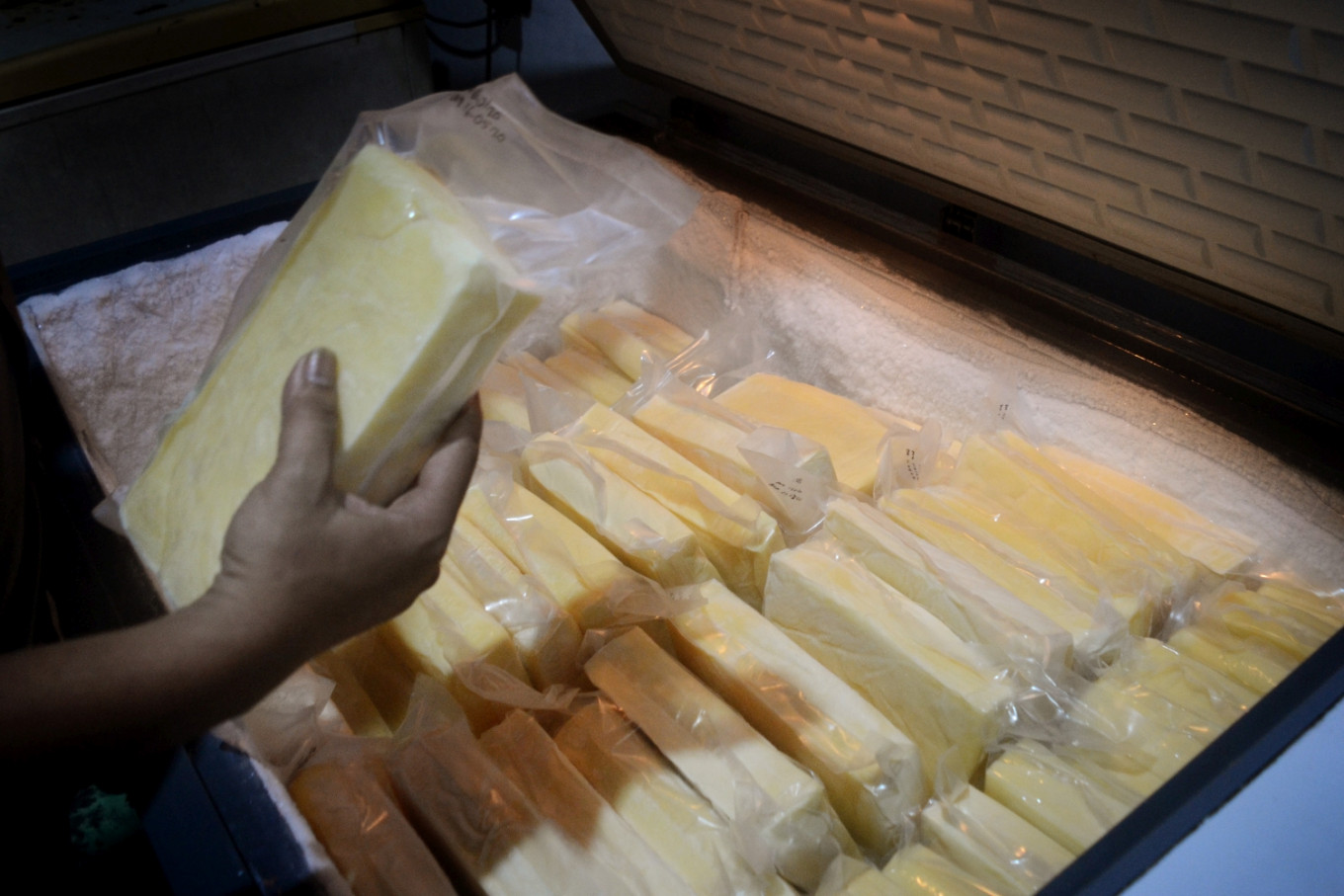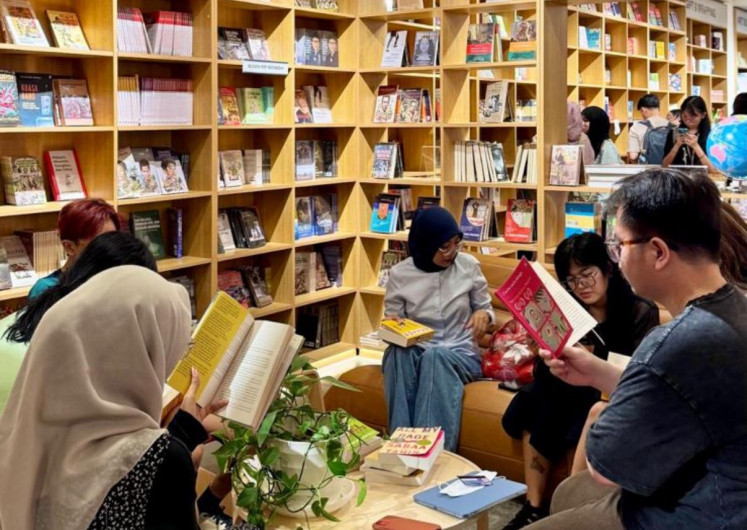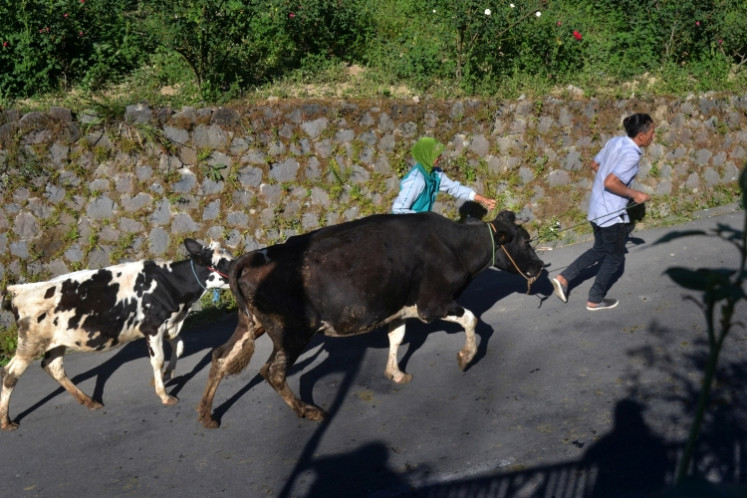Popular Reads
Top Results
Can't find what you're looking for?
View all search resultsPopular Reads
Top Results
Can't find what you're looking for?
View all search resultsIt gets feta: Boyolali produces cheese to match imported products
Cheese production in Boyolali started in 2007 when dairy farmers in the regency received assistance from a German NGO.
Change text size
Gift Premium Articles
to Anyone
C
heese is usually seen as a Western product, but now the commodity is well developed in Boyolali, a small town on the slopes of Mount Merapi and Mount Merbabu in Central Java.
Cheese production in Boyolali started in 2007 when dairy farmers in the regency received assistance from a German NGO.
Abundant milk production led to them to come up with the idea of conducting training on manufacturing new dairy products such as soaps, cheese and yogurt. The idea received a warm welcome and in 2009 a cheese cooperative, named Indrakila, was established in Boyolali.
According to Boyolali Animal Husbandry and Fisheries Agency data, dairy cattle breeders in the region can produce around 80,000 liters of milk a day from around 60,000 cows.
In Indrakila, the cheese production remains at the home industry level, having the capacity of consuming only 3,000 to 5,000 liters of milk. Employing five workers a day, Indrakila can produce varied natural cheese products such as mountain, mozzarella and feta.
“We are currently also developing a cheese variant inspired by the Camembert cheese. But, as this is produced here in Boyolali, we call it Boyobert cheese,” Indrakila’s production manager Romi Anjas said.
Romi said all the cheese products they made underwent various adjustment processes. The basic recipe, he said, referred to the international standard.
However, in the production process, some adjustments are made to suit differences in the cow’s milk nutritional characteristics due to the variation in food types and farming techniques between dairy cows in Europe and in Boyolali.
Indrakila also adds some innovations to the cheese flavor by including certain ingredients, from oregano to chili, black pepper and olive oil.
The products are marketed to various cities in Indonesia including Semarang, Wonosobo, Malang, Pontianak and Balikpapan. Direct buyers include owners of restaurants, cafes and hotels. They use the cheese in their menus.
Retail distributors are so far only available in Yogyakarta and Bali although the products can also be purchased online. The price is much lower than imported products, between Rp 125,000 (US$9.10) and Rp 180,000 per kilogram.
The curd from the cheese-making process is also collected for local farmers and breeders to use as either organic fertilizers or as a mixture for additional foods for their livestock.












